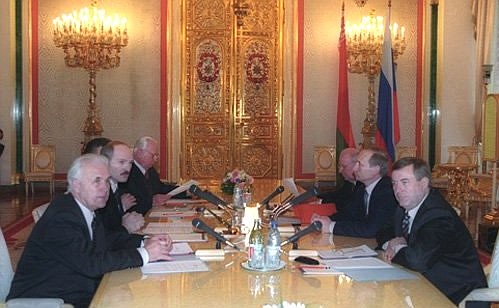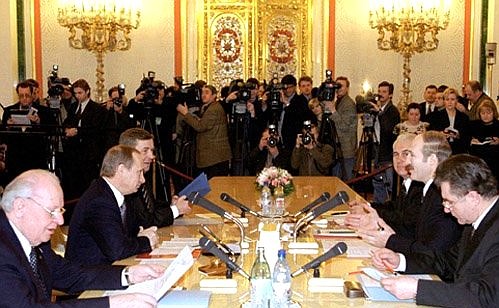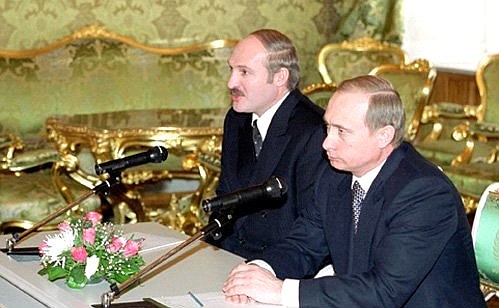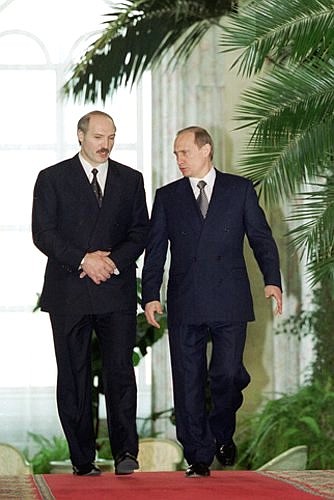Opening the meeting of the Supreme Council, Acting President Vladimir Putin said that the union of the two states was not a union of bureaucracies but a union of the Russian and Belarusian peoples. He stressed that it would be unacceptable to significantly expand the bureaucratic machine and called for efforts to optimise the administrative bodies of the Union State.
Mr Putin indicated in particular that all actions by the Russian and Belarusian leaderships would become a reality after they were legally formalised and a joint parliament formed.
In the course of the meeting, Mr Putin and Belarusian President Alexander Lukashenko discussed personnel and organisational matters related to the functioning of the Union State. Five resolutions were adopted.
Mr Lukashenko was appointed chairman of the Supreme State Council of the Union State. First Deputy Prime Minister Mikhail Kasyanov was made chairman of the Council of Ministers. Pavel Borodin became state secretary of the Union State.
Moscow was designated as the seat of the Standing Committee of the Union State.
A resolution was passed to draft documents and proposals on the establishment of a Union State and the formation of its bodies.
The leaders of Russia and Belarus also agreed to do everything in their power to elect a parliament of the Union State in 2000.
Following the first meeting of the Supreme State Council, Mr Putin and Mr Lukashenko replied to journalists’ questions.
The acting Russian president praised the results of the Russian-Belarusian summit, indicating that the decisions it had adopted were related mainly to economic matters and the pace of integration. He also told the media that the two leaders had agreed to promote a common economic space and follow a single customs policy.
Mr Putin also pointed out that the Union treaty provided a hands-on mechanism to prevent any stalling in the development of Russian-Belarusian relations.
The Russian and Belarusian leaders said they were not afraid of the fact that the two countries differed in pace of economic reform and the market structure of their economies. “I would not exaggerate the importance of that,” Mr Putin told the journalists. Mr Lukashenko said that even inside Russia itself reforms were moving at different paces in the individual regions of that vast country. In his view, certain differences in the economic set-ups of Russia and Belarus would remain, but the two countries had concluded the treaty precisely to unify these processes. The Belarusian president also said it did not matter which type of enterprise – public or private – produced this or that tractor. “The main thing is that it should be made and sold”, he said.
Mr Putin expressed the view that aside from their differences, Russia and Belarus had a good deal in common. “Belarus has a newspaper called Sovetskaya Belorussiya, and Russia has a newspaper called Sovetskaya Rossiya,” he joked.
The two leaders told journalists that the Union between Russia and Belarus was open to any countries that wanted to join, and some were already thinking seriously about doing so.
The acting Russian president highlighted the fact that the decision to hold a meeting of the Supreme State Council right after the meeting of CIS leaders in Moscow was not accidental. Mr Putin and Mr Lukashenko had wanted to emphasise that any one who shared the objectives set forth in the constituent documents of the Union State could join in Russian-Belarusian negotiations after the summit.
Speaking of the nature of the Union State, Mr Putin said that there was no question of any infringement upon sovereignty. The matter was one of developing economic integration for the good of the nations wishing to participate, and such nations do exist.



